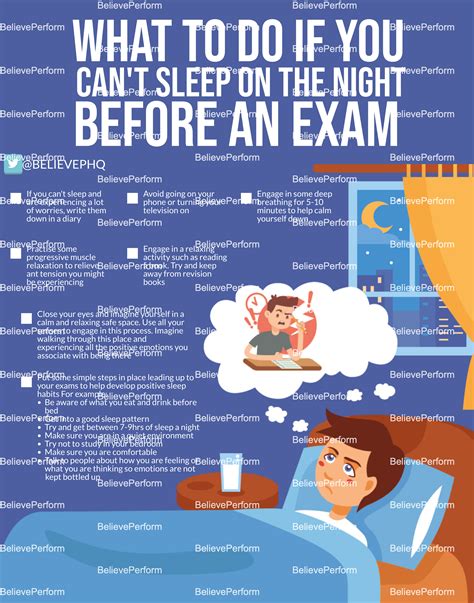College is an exciting time for many young people. It signifies a new chapter in their lives, filled with opportunities for learning, growth, and independence. However, for some students, the transition to college can also be a challenging one. One of the most common challenges is difficulty sleeping.

According to the American College Health Association, approximately 45% of college students report having trouble sleeping at night. This number is likely even higher for first-year students, who are adjusting to a new environment, a new schedule, and a new level of academic rigor. There are many factors that can contribute to sleep problems in college students, including:
- Stress and Anxiety: The transition to college can be a stressful time for many students. They may be worried about their academic performance, their social life, or their financial situation. These worries can make it difficult to relax and fall asleep at night.
- Changes in Routine: College students often have to adjust to a new sleep schedule. They may be going to bed and waking up later than they did in high school. They may also be taking classes at different times of the day. These changes in routine can disrupt the body’s natural sleep-wake cycle.
- Caffeine and Alcohol Use: Caffeine and alcohol are both stimulants that can make it difficult to fall asleep. Many college students use caffeine and alcohol to stay awake and socialize. However, these substances can interfere with sleep quality.
- Lack of Physical Activity: Regular exercise can help to improve sleep quality. However, many college students are too busy with their studies and social lives to get regular exercise.
- Mental Health Conditions: Students who are struggling with mental health conditions such as depression or anxiety are more likely to have difficulty sleeping.
The Impact of Sleep Problems on College Students
Sleep problems can have a significant impact on the academic success and overall well-being of college students. Students who don’t get enough sleep are more likely to:
- Have difficulty paying attention in class
- Make mistakes on exams
- Withdraw from classes
- Experience anxiety and depression
- Get sick more often
- Have accidents
What Can College Students Do to Improve Their Sleep?
There are a number of things that college students can do to improve their sleep. Some helpful tips include:
- Establish a Regular Sleep Schedule: Go to bed and wake up at the same time each day, even on weekends. This will help to regulate your body’s natural sleep-wake cycle.
- Create a Relaxing Bedtime Routine: Wind down before bed by taking a warm bath, reading a book, or listening to calming music. Avoid activities that can stimulate your mind, such as watching TV or working on the computer.
- Make Sure Your Bedroom is Conducive to Sleep: Your bedroom should be dark, quiet, and cool. Avoid sleeping in a room that is too bright, noisy, or warm.
- Limit Caffeine and Alcohol Use: Avoid caffeine and alcohol in the hours leading up to bedtime.
- Get Regular Exercise: Regular exercise can help to improve sleep quality. Aim for at least 30 minutes of moderate-intensity exercise most days of the week.
- Seek Professional Help if Needed: If you are struggling to improve your sleep on your own, talk to a doctor or therapist. They can help you to identify the underlying cause of your sleep problems and develop a treatment plan.
The Benefits of Getting Enough Sleep in College
Getting enough sleep is essential for the academic success and overall well-being of college students. Students who get enough sleep are more likely to:
- Have better attention and memory
- Perform better on exams
- Have more energy
- Experience less anxiety and depression
- Get sick less often
- Live healthier, longer lives
Tips for Helping Your College Student Get a Good Night’s Sleep
As a parent, you can help your college student get a good night’s sleep by:
- Talking to them about the importance of sleep: Help your student understand how sleep can affect their academic success and overall well-being.
- Encourage them to establish a regular sleep schedule: Help your student go to bed and wake up at the same time each day, even on weekends.
- Help them create a relaxing bedtime routine: Encourage your student to wind down before bed by taking a warm bath, reading a book, or listening to calming music.
- Make sure their bedroom is conducive to sleep: Help your student keep their bedroom dark, quiet, and cool.
- Encourage your student to limit caffeine and alcohol use: Explain to your student how caffeine and alcohol can disrupt sleep and encourage them to avoid these substances in the hours leading up to bedtime.
- Encourage your student to get regular exercise: Explain to your student how exercise can help to improve sleep quality and encourage them to aim for at least 30 minutes of moderate-intensity exercise most days of the week.
- Suggest your student to seek professional help if needed: If your student is struggling to improve their sleep on their own, encourage them to talk to a doctor or therapist. They can help your student identify the underlying cause of their sleep problems and develop a treatment plan.
Conclusion
Getting enough sleep is essential for the academic success and overall well-being of college students. By following the tips in this article, you can help your college student improve their sleep and get the most out of their college experience.
